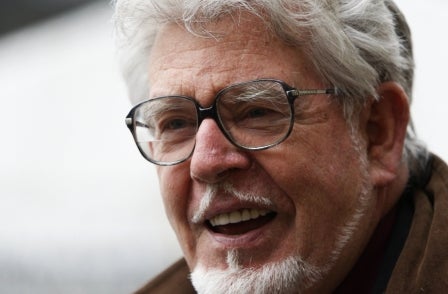
The Association of Chief Police Officers has said it wants to end the ‘bizarre parlour game’ where journalists seek to persuade press officers to reveal the name of individuals who have been arrested.
ACPO is proposing new nationwide guidance suggesting a blanket ban on police revealing the names of people who have been arrested.
The move has been met with alarm by those who fear the consequences of ‘secret arrests’. It has been noted that in the case of Jimmy Savile hundreds of alleged victims only came forward after his identity was made public.
Journalists had been particularly frustrated in recent months by police refusal to confirm that entertainer Rolf Harris had been first questioned and then arrested by officers working on Operation Yewtree.
The majority of police forces already have a policy of declining to confirm the name of arrested individuals.
Writing for Press Gazette today chief constable of British Transport Police Andy Trotter, who leads on media issues for ACPO, said: “A common occurrence has been for a journalist to be given the name of a person from a source. That source could be a witness, friend, family member or even a corrupt public official. The journalist then telephones the force press office and says the name of the person concerned will be published tomorrow.
"What sometimes follows is a bizarre parlour game where the journalist sometimes says things like: ‘will you be angry if I publish this name?’ or ‘am I completely wrong on this?’. Depending on the relationship between journalist and press officer, he or she may receive some guidance, or alternatively, may become quite frustrated when none is provided.
"So the current situation is less than satisfactory, with no one certain as to what can be expected, and a pervasive sense that these arrangements may not be transparent or fair. This is damaging to public confidence in both police and media."
He said ACPO is proposing that all police forces in England, Wales and Northern Ireland adopt a policy of neither confirming or denying names of arrested people when they are put to them by journalists.
He said there will be exceptions “when it will be in the public interest to publish a name” – such as when someone has been arrested for kidnap and the victim is still missing. Those arrested could also be named if police suspect they ”could be responsible for many other crimes, in order to encourage other victims to come forward".
Trotter noted that there is nothing to stop the media naming arrested invidiuals if they find out the name themselves independently. When The Sun took the decision to name Rolf Harris as a Yewtree suspect without police confirmation the main consideration was the entertainer suing for libel if the story was wrong.
He said: “I am only concerned with what the police do and we must be above reproach. The leaking of details of people to the media, either for payment or not, by corrupt officers has led the police into disrepute. The public, the media, and those arrested should all expect police to behave with the highest standards…
“This is not secret justice or secret arrests, but an effort to set clear standards which meet a test of fairness where everyone knows what to expect."
Email pged@pressgazette.co.uk to point out mistakes, provide story tips or send in a letter for publication on our "Letters Page" blog

